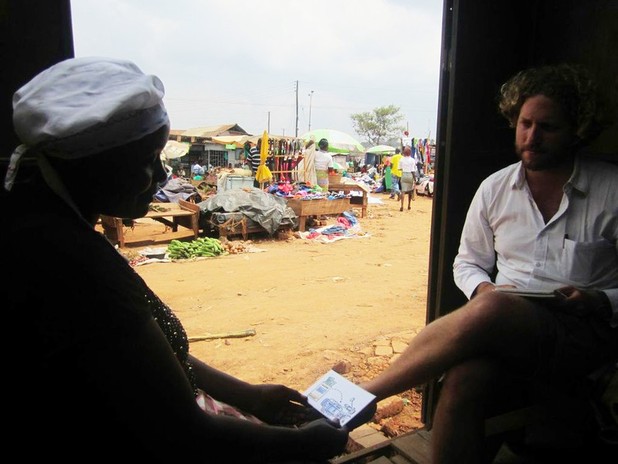August 20, 2013
Following a 2-week deep dive with MEDA and Ugafode to visit rural clients in Uganda, Danny and his IDEO.org team return with some insights as to how individuals perceive formal versus informal savings methods.
After our initial insight that existing savings methods in Uganda are quite sophisticated (albeit, informal), Robin, Eric, and I focused our efforts in the field on better understanding these informal methods and why they are effective. Even in visits with the most rural clients, we found that individuals utilized a diverse portfolio of financial tools, from informal rotating savings groups to investment in physical assets. So an important question to ask was: what are the factors limiting Ugandans to just informal savings behaviors?
Our first realization about the perception of informal versus formal financial tools is that Ugandans think of banks as being reserved for “big money”. One of our interviewees from Mbarara recalls that he spent several weeks saving up before visiting the bank for the sole reason of wanting to impress the bank manager when he arrived to make a deposit. This perception that banks are strictly for large deposits and withdrawals - shared by many of the other people we spoke with - presents an unnecessary hurdle keeping low-income customers from using the bank.
The preference for informal methods also likely arose from the concern that there are too many expensive barriers when it comes to opening a formal account - barriers that would not be well suited for the smaller balances that most Ugandans would maintain. Between bank fees, transportation costs to get to a local bank branch, and the lost opportunity costs of money sitting in a bank account, individuals seem unwilling to use formal accounts for small-scale savings. Even in the case when some of these barriers are removed - i.e. branchless banking reducing travel time and costs - this perception remains strong.
Perhaps the most inspiring theme surrounding financial decision making in Uganda is the idea that money should be active and doing something for the local community. This sense of altruism came across rather poignantly when talking with a gentleman from Kampala, Imam. Imam told us that he likes his informal savings group because they offer school fee loans. In his eyes, this means that his money could be providing school fees for a child who may someday become president.
Formal financial services face great challenges in gaining traction and ensuring relevance to low-income customers, and it’s become clear to us that any new products should not compete with existing structures - rather they must complement and add value to existing informal savings tools.







